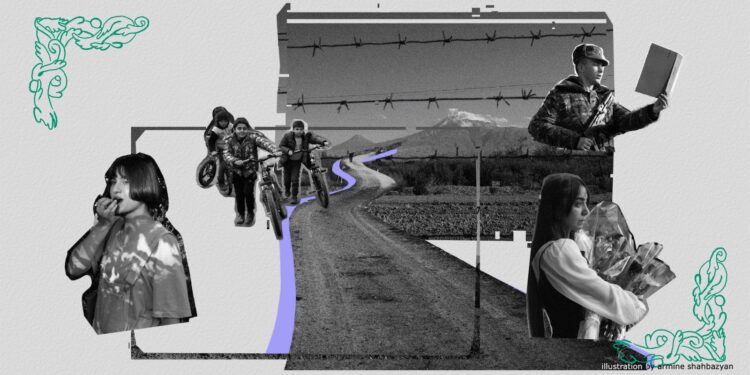Raw & Unfiltered
The Symbols of the First Republic of Armenia
After centuries of being stateless, Armenia declared independence on May 28, 1918. Institutions needed to be built from the ground up including the creation of the symbols of statehood. Here are the stories behind those national symbols as remembered by the First Republic's last Prime Minister Simon Vratsian.
Records, Discourses and Memories: Narrating the First Republic
As Armenians prepare to mark the centennial of the First Armenian Republic (1918-1920), Varak Ketsemanian writes that there seems to be little consensus regarding its true meaning, its contested legacy and the various forms through which it should be commemorated.
Yerevan Time and the Burden of Victory
As a participant and observer in every protest starting with the Karabakh Movement in 1988, Lusine Hovhannisyan writes that while Nikol Pashinyan gifted Armenians victory in 2018, the people now find themselves nervous about every decision, every appointment, every opinion being expressed.
Portraits From Republic Square
Photojournalist Eric Grigorian's series of portraits from Republic Square where thousands gathered in protest as Yerevan enters the seventh day of mass rallies, protests and innumerable acts of civil disobedience.
1988: Thoughts Spoken Aloud
Vardges Baghryan, a journalist from Artsakh recounts his personal memories from the Karabakh Movement and the war. He recalls the siege on the village of Karintak and how the future freedom and independence of the people of Artsakh was forged.
Is This What You Wanted?
President Serzh Sargsyan’s second and final term in office ends on April 9. It is almost certain that he will be elected as the country’s new prime minister thereby prolonging his power. EVN Report looks back at the Constitutional amendments that led to this situation and a new military-patriotic educational doctrine that is set to pass in parliament.
The “Hunger Artist” Among Us
A perceived absence of agency has led to growing public indifference in Armenia. When those who do take a stand, regardless of their tactics, are left to stand alone, more questions than answers surface. From the recent sentencing of radical opposition activists, to sit-ins and hunger strikes Opera Square to continuing impunity, everyone seems to be forgetting to ask, why?
A Country That Changed Hands: A Conversation About Us and Us
Lusine Hovhannisyan was a witness and participant in the Karabakh Movement. Thirty years later, she had the chance to meet with someone who was on the opposite side of the barricades - a Soviet official who had tried to infiltrate the ranks of the demonstrators.
Not What But Why: The Nature of Patriarchy
Gender discrimination is a deeply cultural problem, Rafik Santrosyan writes. The incident last month in Yerevan City Hall where a group of men beat a woman councilor highlight how patriarchal relations, toxic masculinity and internalized misogyny have influenced the public discourse.
A Hidden Minority: Children With Disabilities in Armenia
“There are no invalids in the USSR!” This much heard expression exemplifies how people with disabilities were stigmatized in the Soviet Union. How pervasive is the exclusion of people with disabilities in post-Soviet Armenia? Anais Bayrakdarian talks to experts working in the field and writes that the true measure of any society can be found in how it treats its most vulnerable.












